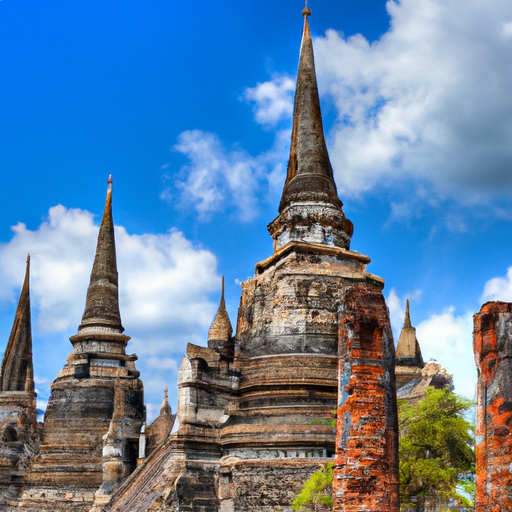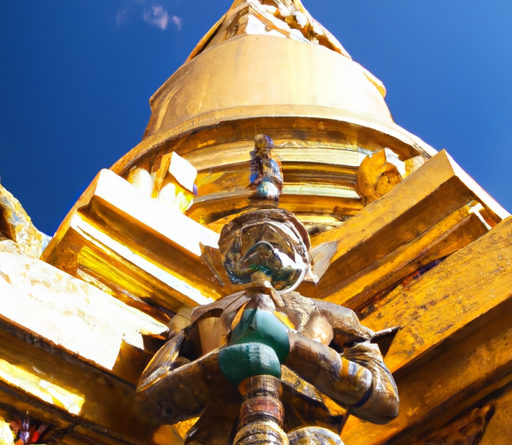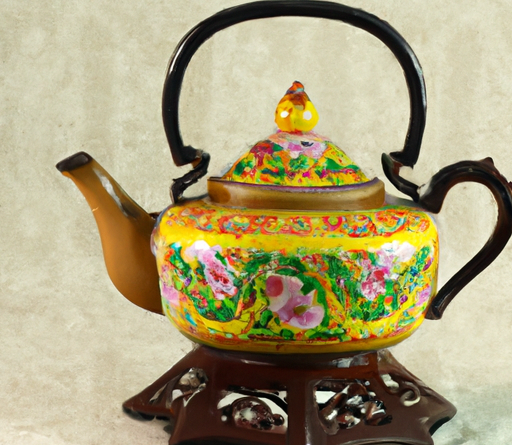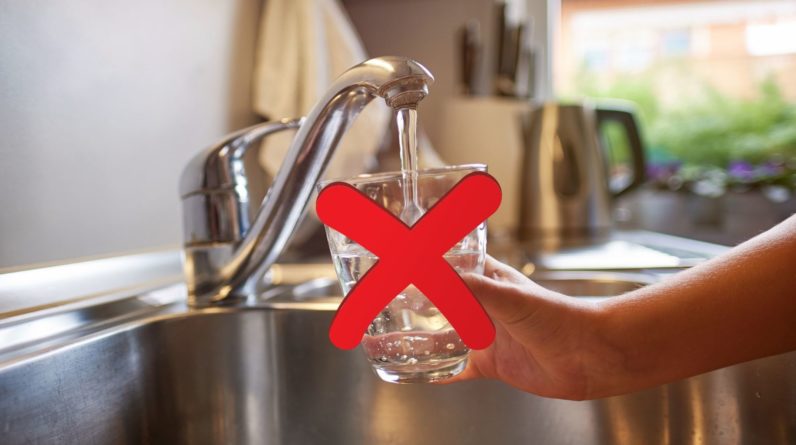
Are you worried about the safety of tap water in Thailand? Well, you’re not alone. Many travelers have concerns about drinking tap water in foreign countries, and it’s completely understandable. In this article, we will explore the topic in depth and provide you with essential information to help you make an informed decision. So, stay tuned to learn more about the safety of tap water in Thailand and whether you should be drinking it or not.
If you have plans to visit Thailand or are already there and are curious about the safety of tap water, this article is for you. We understand the importance of staying hydrated, especially when traveling, but we also know that your health and well-being should be a top priority. In the next few paragraphs, we will discuss the factors that contribute to the safety of tap water in Thailand, the precautions you can take, and the alternatives available to ensure you stay healthy during your trip. So, keep reading to find out everything you need to know about drinking tap water in Thailand. Many travelers to Thailand find themselves asking this question. The availability and quality of tap water can vary significantly from one location to another, and it’s important to understand the potential risks associated with consuming tap water in different regions of the country. In this article, we will provide an overview of tap water in Thailand, discuss the quality specifications and testing, explore the contaminants and health risks, compare tap water and bottled water, examine the benefits and drawbacks of drinking tap water, evaluate tap water safety in different regions, provide safe drinking practices, discuss government initiatives and improvements, and offer some final considerations and tips for safe tap water consumption.
Overview of Tap Water in Thailand
Availability of Tap Water
Tap water is generally available in most urban areas of Thailand, including major cities like Bangkok. However, the reliability and quality of the water supply can vary depending on the specific location. In some areas, there may be intermittent water supply or low pressure, while in others the water quality may be questionable.
Sources of Tap Water
The main sources of tap water in Thailand are surface water, such as rivers and reservoirs, and groundwater. Surface water is commonly used for urban areas, while groundwater is more prevalent in rural areas. These sources can be susceptible to contamination from various pollutants, including industrial waste, agricultural runoff, and sewage.
Methods of Water Treatment
Thailand has established water treatment facilities to ensure that tap water meets the national water quality standards. The treatment process typically involves several steps, including coagulation, flocculation, sedimentation, filtration, and disinfection. Chemicals such as chlorine are used to remove contaminants and ensure the water is safe for consumption.
Quality Specifications and Testing
National Water Quality Standards
Thailand has set national water quality standards to ensure the safety and suitability of tap water for drinking. These standards cover various parameters, including microbial contaminants, chemical contaminants, and physical factors such as color, odor, and turbidity. The standards outline the maximum allowable limits for each parameter, which water suppliers must comply with.
Frequency of Water Testing
Water authorities in Thailand are responsible for testing water samples regularly to ensure compliance with the national water quality standards. The frequency of testing varies depending on the size and population of the area served. In general, larger water supply systems are subject to more frequent testing than smaller ones.
Safety Regulations and Compliance
To ensure the safety of tap water, Thailand has implemented safety regulations and compliance measures. Water suppliers are required to follow specific guidelines and procedures for water treatment, testing, and monitoring. Government agencies such as the Ministry of Public Health and the Provincial Waterworks Authority oversee the enforcement of these regulations and conduct inspections to ensure compliance.
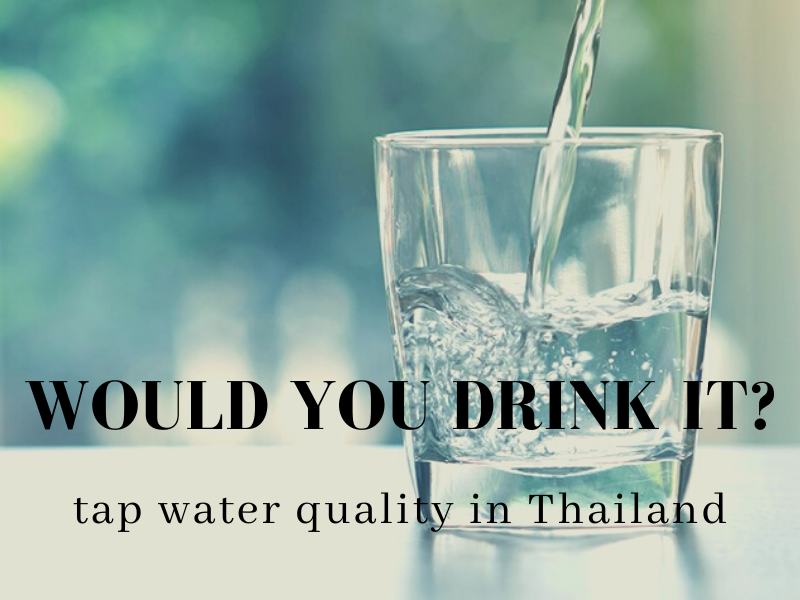
This image is property of iamkohchang.com.
Contaminants and Health Risks
Microbial Contaminants
The presence of microbial contaminants in tap water can pose a significant health risk. Bacteria, viruses, and protozoa are the most common types of microbial contaminants found in water. These contaminants can cause illnesses such as diarrhea, vomiting, and abdominal pain, especially in individuals with weakened immune systems.
Chemical Contaminants
Chemical contaminants can also be present in tap water in Thailand. These contaminants can come from various sources, including agricultural runoff, industrial waste, and household chemicals. Common chemical contaminants found in tap water include heavy metals, pesticides, and organic compounds. Long-term exposure to these contaminants may be associated with adverse health effects, including developmental disorders and certain types of cancer.
Potential Health Risks
Consuming tap water contaminated with microbial or chemical contaminants can lead to a range of health issues. The severity of these risks can vary depending on the specific contaminants present, the concentration levels, and the individual’s susceptibility. It is important to note that the risks of tap water consumption in Thailand may be higher in certain regions or during particular times, such as after heavy rainfall or during periods of water scarcity.
Waterborne Diseases in Thailand
Common Waterborne Diseases
Thailand, like many other countries, is susceptible to waterborne diseases. Common waterborne diseases that can be transmitted through contaminated tap water include cholera, typhoid fever, hepatitis A, and gastroenteritis. These diseases can cause symptoms such as diarrhea, nausea, fever, and abdominal cramps.
Prevention and Symptoms
Preventing waterborne diseases involves practicing good hygiene and taking precautions when consuming tap water. It is important to wash your hands frequently, especially before handling food and after using the bathroom. Boiling tap water or using water filters can also help reduce the risk of microbial contamination. Symptoms of waterborne diseases can vary but may include diarrhea, vomiting, fever, and fatigue.
Risk Factors
Several risk factors can increase the likelihood of contracting waterborne diseases in Thailand. These include consuming tap water from questionable sources, eating raw or undercooked food, and poor personal hygiene practices. Travelers, in particular, may be at a higher risk due to exposure to unfamiliar water sources and environments.
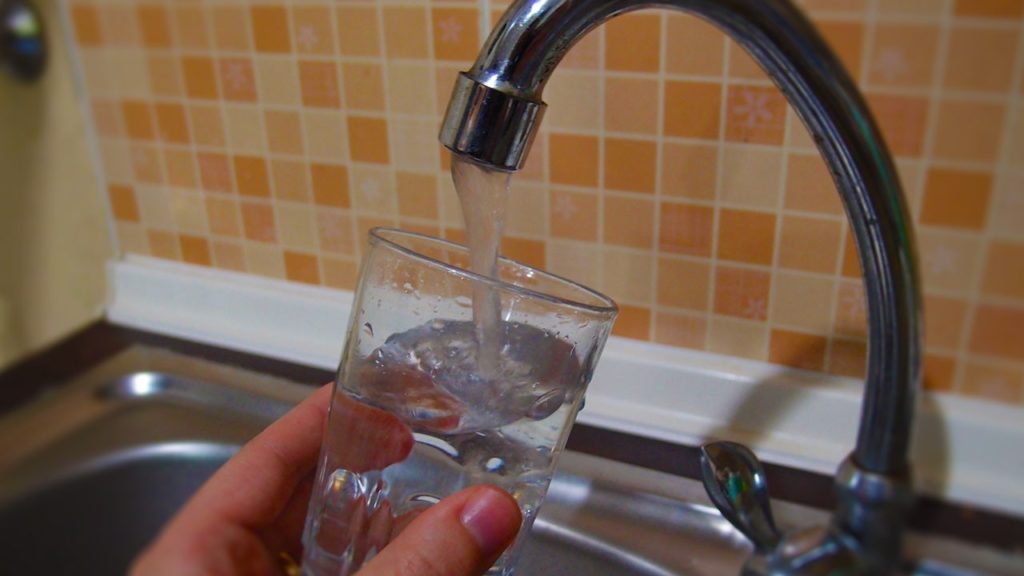
This image is property of bangkokhasyou.com.
Comparing Tap Water and Bottled Water
Cost and Accessibility
Tap water is generally more cost-effective and accessible compared to bottled water in Thailand. Tap water is supplied through the existing infrastructure and is available for use at any time. On the other hand, bottled water needs to be purchased, which can add up in cost, particularly for long-term stays or frequent travelers.
Quality and Purity
Bottled water is often perceived as being of higher quality and purity compared to tap water. Bottled water manufacturers are required to meet specific health and safety standards, ensuring that the water is free from contaminants. However, it’s worth noting that some bottled water brands may simply be tap water that has been filtered or treated.
Environmental Impact
One of the major drawbacks of bottled water is its environmental impact. The production, transportation, and disposal of plastic bottles contribute to pollution and resource depletion. Choosing to drink tap water in Thailand can help reduce plastic waste and minimize your environmental footprint.
Benefits and Drawbacks of Drinking Tap Water
Advantages of Tap Water
Drinking tap water in Thailand has several advantages. It is a cost-effective and convenient option, especially for residents or long-term visitors. It can also help reduce the environmental impact associated with bottled water consumption. Additionally, tap water often contains essential minerals that are beneficial for health.
Disadvantages of Tap Water
The main disadvantage of tap water is the potential risk of contamination. Despite the treatment processes in place, there is still a possibility of contaminants being present in the water supply. This risk may be higher in certain regions or during specific times. Some individuals may also find the taste or odor of tap water unpleasant.
Precautions to Take
To minimize the risks associated with tap water consumption in Thailand, it is advisable to take certain precautions. Boiling tap water can help kill microbial contaminants, making it safer to consume. Using water filters can also help remove impurities and improve the taste and odor of tap water. If you opt for bottled water, ensure that the bottles are properly sealed and from a reputable source.
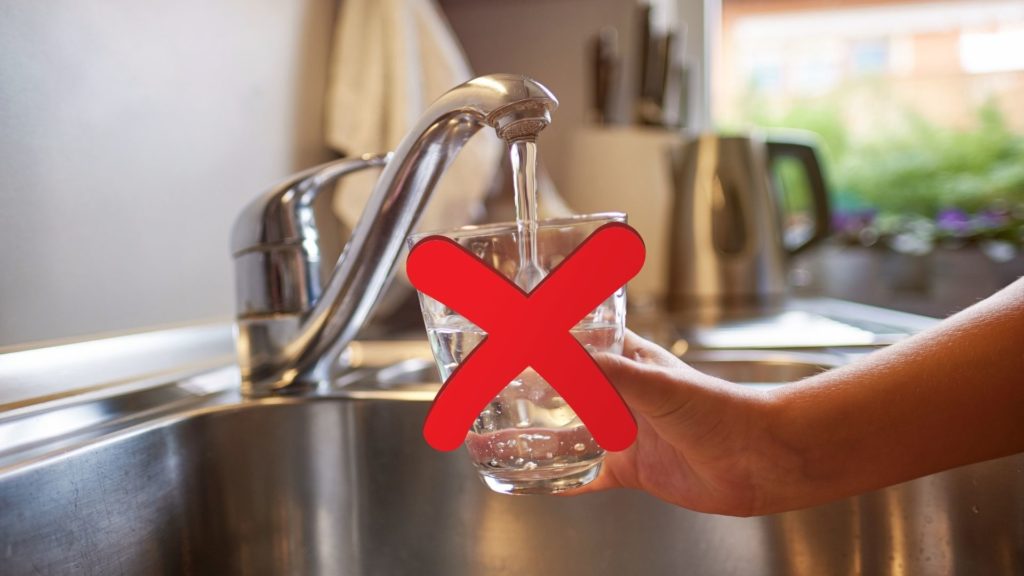
This image is property of thailand.yinteing.com.
Tap Water Safety in Different Regions of Thailand
Bangkok
Tap water in Bangkok is generally considered safe to drink. The water treatment process and monitoring systems in place help maintain the quality and safety of the water supply. However, it is still recommended to use additional precautions, such as boiling or filtering tap water, particularly if you have a sensitive stomach or compromised immune system.
Tourist Areas
In popular tourist areas of Thailand, tap water is often treated and considered safe for consumption. However, there can be variations in water quality and supply reliability, especially in more remote or rural areas. It is advisable to check with local authorities or your accommodation provider for specific information about the tap water in the area you are visiting.
Rural Areas
Tap water in rural areas of Thailand may be less reliable and more susceptible to contamination. In some cases, the water supply may not undergo the same level of treatment and monitoring as in urban areas. It is important to be cautious and consider using additional precautions, such as boiling or filtering tap water, before consumption.
Safe Drinking Practices
Boiling Tap Water
Boiling tap water is one of the most effective ways to kill microbial contaminants. Bring the water to a rolling boil for at least one minute, then let it cool before consumption. Boiled water can be used for drinking, cooking, and brushing teeth.
Using Water Filters
Water filters can help remove impurities and improve the taste and odor of tap water. There are various types of filters available, including activated carbon filters and reverse osmosis systems. It is important to choose a filter that is appropriate for the specific contaminants present in the tap water.
Buying Bottled Water
If you prefer the convenience of bottled water, ensure that the bottles are properly sealed and from a reputable source. Look for water brands that have been certified by recognized authorities and undergo regular testing for quality and safety. Remember to recycle the empty bottles to minimize environmental impact.
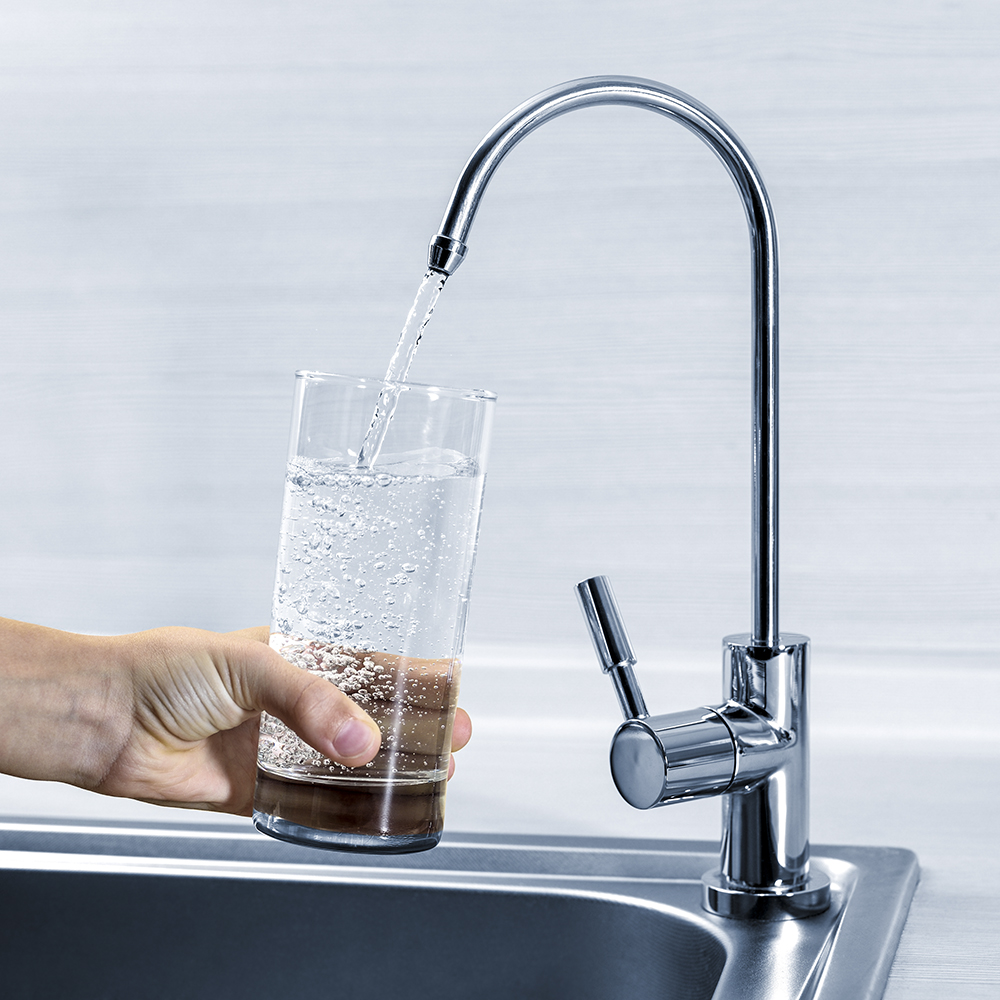
This image is property of wp-assets.dotproperty-kh.com.
Government Initiatives and Improvements
Water Management Plans
The Thai government has implemented water management plans to address water quality and supply issues. These plans include measures such as improving water treatment facilities, enhancing monitoring systems, and promoting water conservation practices. The government’s goal is to ensure the availability of safe and sustainable water resources for all residents and visitors.
Infrastructure Investments
Investments in water infrastructure are crucial to improving the quality and reliability of tap water in Thailand. The government has allocated funds for the construction and upgrading of water treatment plants, pipelines, and storage facilities. These infrastructure improvements aim to meet the increasing demand for clean and safe water.
Public Awareness Campaigns
Public awareness campaigns play a vital role in educating residents and tourists about tap water safety and the importance of conservation. The Thai government, along with various organizations and non-governmental agencies, has launched campaigns to promote responsible water usage and raise awareness about the risks and benefits of tap water consumption.
Conclusion
In conclusion, the safety of tap water in Thailand can vary depending on the specific location and various factors such as the source of water, treatment methods, and compliance with safety regulations. While tap water in urban areas such as Bangkok is generally considered safe, it is important to always exercise caution and use additional precautions, such as boiling or filtering tap water, especially in rural areas or during times of water scarcity. Ultimately, the decision to drink tap water or opt for bottled water is a personal choice that should take into consideration the individual’s risk assessment and preferences. By following safe drinking practices and staying informed about the quality of tap water in different regions, you can enjoy a safe and enjoyable stay in Thailand. Stay hydrated, stay informed, and stay healthy!
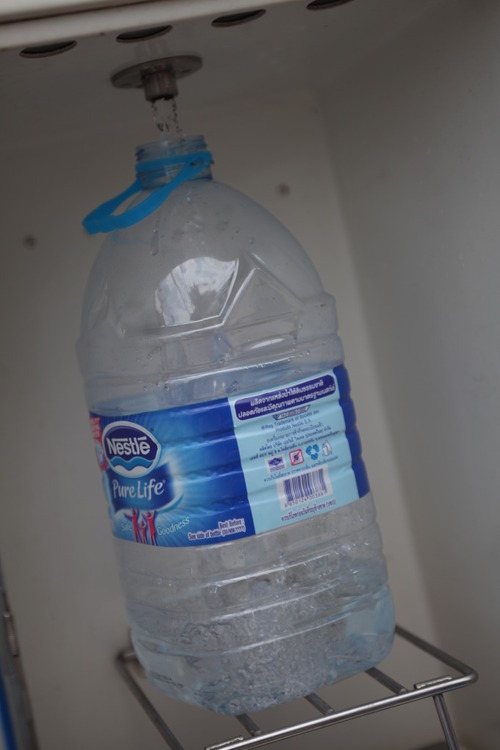
This image is property of 78.media.tumblr.com.
